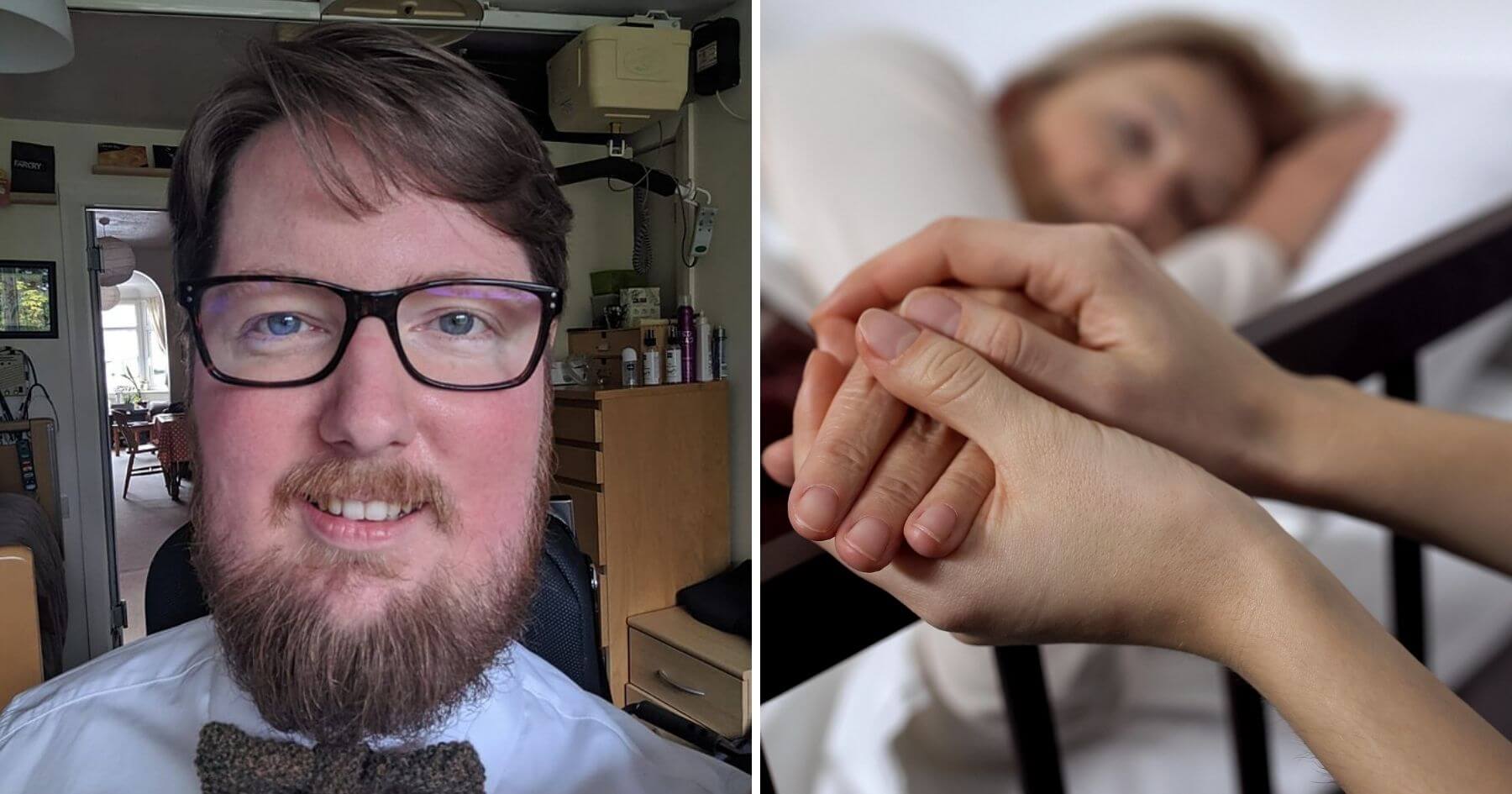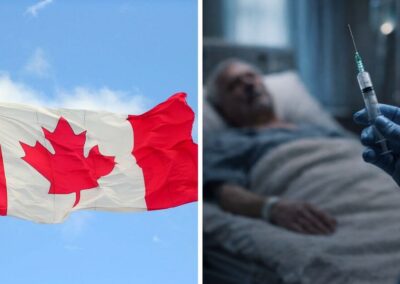The All-Party Parliamentary Group for Dying Well recently held a parliamentary event in which leading disability rights campaigners spoke powerfully against Baroness Meacher’s assisted suicide bill.
The cross-party parliamentary group was formed earlier this year in order to unite against renewed calls to make assisted suicide legal in the UK.
The event was opened by the Group’s Chair, Danny Kruger MP, who emphasised “the absolutely central importance of the rights of disabled people in this debate”.
Founder of “Not Dead Yet UK” and Crossbench Peer, Baroness Jane Campbell, who has spinal muscular atrophy, led the discussion.
“It’s not a safe time to be introducing this bill”
Dr Miro Griffiths, an editor for the International Journal of Disability and Social Justice, and Leverhulme Research Fellow at the University of Leeds’ Centre for Disability Studies, was among the speakers.
Dr Griffiths, who himself is a wheelchair user due to having spinal muscular atrophy, is currently researching young disabled people’s political engagement and activism.
He has worked as a board member of the European Network on Independent Living, focusing on various aspects of disability life such as counteracting disability hate crime, social inclusion and independent living.
He has previously advised the Labour Party and the Coalition government as part of his role as Member of Equality 2025.
In 2014 he was made a Member of the Order of the British Empire (MBE) in the Queen’s Birthday Honours.
Addressing the All-Party Parliamentary Group for Dying Well, he argued that “it’s not a safe time to be introducing this bill, because of the historical legacy of injustice experienced by disabled people, but also because, currently, we are going through a pandemic, which has exacerbated the marginalisation experienced disabled people”.
“Often the language that is used, surrounding the terminology surrounding advocates for assisted dying, propose this idea of relieving a burden or relieving stress on families and informal networks. But we’ve seen this also translated in countries where there is assisted dying and assisted suicide infrastructure”.
People with disabilities need dignity in life
“We see examples such as in Oregon, where these sorts of opinions become integrated within medical practice, where we see people being offered assisted suicide, because perhaps other treatments and support infrastructure is not available, or is not as desirable as this option. We see situations where families have recorded accounts where health professionals have raised the option of assisted suicide as a way to spare or relieve the burden on families and individuals”.
He emphasised his view that “dignity in life should be achieved before dignity in death”, and that “The Assisted Dying Bill is unsafe, dangerous, and should not be considered when people are experiencing widespread barriers in their daily lives”.
Pushing the boundaries
Chair of the pro-assisted suicide group, ‘Dignity in Dying’, Baroness Meacher’s private member’s bill on assisted suicide received its First Reading in the House of Lords on 26 May this year, and a Second Reading is expected in the autumn.
The Bill follows the Marris-Falconer Assisted Dying Bill (2015), which was defeated by a majority of 330 to 118 MPs.
According to supporters of the Bill, Dignity in Dying, “[t]he bill is modelled on legislation that has been in place in Oregon, USA for over 23 years […]”.
Other countries that have introduced supposedly restricted assisted suicide and euthanasia legislation have seen an expansion of their laws as medical professionals and activists push the boundaries of acceptable practice.
Expanding euthanasia law
In the Netherlands, Canada, and Belgium, the law that permits euthanasia has rapidly expanded to include more categories of people.
Belgium legalised euthanasia in 2002 and since then, the practice has even been extended to children. The current law allows euthanasia if the patient is in a state of constant physical or psychological pain.
There is now a renewed push for euthanasia to be available for those who are healthy but have decided they have led a ‘fulfilled life’.
In the Netherlands, where euthanasia has been legal since 2002, doctors are now permitted to secretly sedate patients who have dementia before euthanising them. The law permits voluntary euthanasia for anyone over the age of 16, and children aged 13-15 can be euthanised with their parents’ consent. Earlier this year, the Dutch government said it would be changing the regulations to allow doctors to end the lives of terminally ill children between the ages of one and twelve.
Euthanasia has been legal in Canada since 2016. In 2019 however, following the euthanising of Alan Nichols, a former school caretaker who was physically healthy but struggled with depression, the legal requirement that a person be terminally ill before administration of euthanasia was dropped.
Bill C-7, recently passed by the Canadian Parliament, intends to further extend euthanasia legislation to people with disabilities and those with mental health issues.
Right To Life UK spokesperson, Catherine Robinson, said: “It is great to see Dr Griffiths campaigning for the rights of people with disabilities, and speaking out against the prevailing – yet misleading – narrative on assisted suicide”.
“The overwhelming majority of doctors who work in end-of-life care continue to oppose assisted suicide. They know from experience that what vulnerable people need at the end of their lives is love and support, not offers to assist their death”.
“We also have increasing evidence that people’s wishes to die are transient. The Irish Longitudinal Study on Ageing, for example, surveyed 8,174 people over the age of 50 and found that 3.5% expressed a wish to die at Wave 1 of the study. However, 72% of these participants no longer reported a wish to die when reassessed two years later. We should seek to care for those experiencing suicidal thoughts, rather than state-sanction their deaths”.
“However well-intentioned, the legalisation of assisted suicide in certain circumstances will almost inevitably extend to the non-terminally ill who are suffering, as it has in other jurisdictions. It is no coincidence that many prominent people with disabilities such as Dr Griffiths, disability rights groups, and many respected healthcare professionals continue to rally against such legislation, for it strikes against the very heart of the dignity and care we ought to afford to each human being”.












